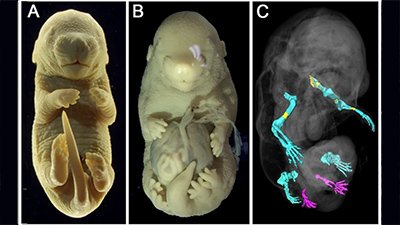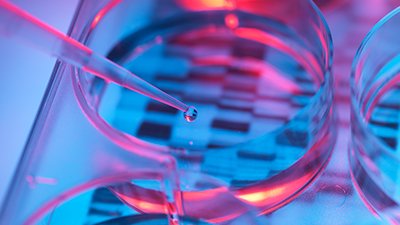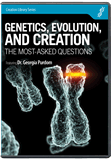From Organism to Organism: Gene Swapping
AP: “Gene Swap Changes Organism’s Species”
It’s a first in the field of genetics: scientists have altered one bacteria species into another by swapping bacterial genomes. An AP story describes the task:
For years, scientists have moved single genes and even large chunks of DNA from one species to another. But [the] team transplanted an entire genome, all of an organism’s genes, from one bacterium into another in one fell swoop. ... [S]omehow the new genes cleanly replaced the old and started working correctly—not very often, but in just enough cells to prove the concept.
Some scientists hope one day to use such methods to “build new organisms that work in ways totally different from what nature intended.”
The article notes that, although “the researchers [do not] know exactly how the transplant took hold,” it remains “a landmark in biological engineering,” according to Science deputy editor Barbara Jasny. And when the article describes the change as “working correct ... not very often,” it means it—only “about one in every 150,000 cells” was transformed properly!
Some scientists hope one day to use such methods to “build new organisms that work in ways totally different from what nature intended,” such as creating “artificial chromosome[s] ... that [contain] industrially useful genes such as ones that could help produce alternative fuels.”
The article closes with a cautionary note:
It’s not clear that the method would work on larger, more complicated bacteria, other specialists cautioned. Nor does the work automatically mean an artificial chromosome alone could activate a living cell.
“It’s going to be much more complicated to do with synthetic organisms,” said Dr. Jonathan Eisen, an evolutionary biologist at the University of California, Davis. Still, “it’s a great first step.”
Indeed, the world of genetics is almost bafflingly complex and a clear testimony to the handiwork of the Creator. Learn more about this topic in our Q&A: Genetics and Q&A: Information. How ironic if anyone believes this supports a materialistic origin to life when scientists intelligently transfer existing DNA, and yet have such a low success rate. In reality, they are affirming the idea of a Creator and showing how unlikely it is that life could have arisen by chance processes.
Remember, if you see a news story that might merit some attention, let us know about it! (Note: if the story originates from the Associated Press, Fox News, MSNBC, the New York Times, or another major national media outlet, we will most likely have already heard about it.) And thanks to all of our readers who have submitted great news tips to us.
(Please note that links will take you directly to the source. Answers in Genesis is not responsible for content on the websites to which we refer. For more information, please see our Privacy Policy.)
Recommended Resources

Answers in Genesis is an apologetics ministry, dedicated to helping Christians defend their faith and proclaim the good news of Jesus Christ.
- Customer Service 800.778.3390
- © 2024 Answers in Genesis






